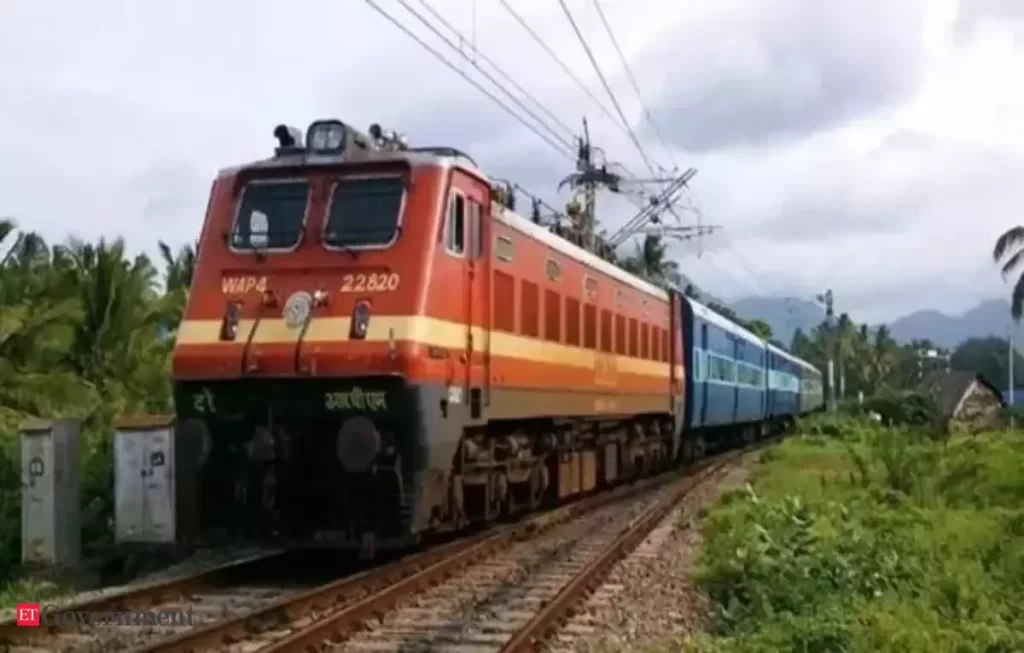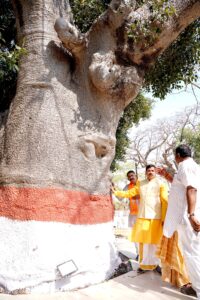
Indore-Manmad Railway Line Project: The Cabinet Committee on Economic Affairs (CCEA), chaired by Prime Minister Narendra Modi, has approved a new railway line project worth approximately Rs 18,036 crores under the Ministry of Railways. This new railway line, proposed between Indore and Manmad, aims to provide direct connectivity between these two significant commercial hubs.
This initiative is part of the PM-Gati Shakti National Master Plan for Multi-Modal Connectivity and will span six districts across Maharashtra and Madhya Pradesh, expanding the existing Indian Railways network by around 309 kilometers.
Connecting Key Commercial Hubs: The approved project will not only connect Mumbai and Indore via the shortest rail route but will also link previously unconnected areas in two districts of Maharashtra and four districts of Madhya Pradesh. The total project cost is Rs 18,036 crores, with completion expected by 2028-29. During construction, the project is projected to generate approximately 102 lakh man-days of direct employment.
Local Demand Finally Addressed: The people of Barwani have long advocated for the Khargone-Barwani railway line since India’s independence. The absence of a railway line in both districts has led to persistent demands from the local population.
Upon hearing the news of the approval for the Indore-Manmad railway line, excitement erupted in the area, with BJP workers celebrating by bursting firecrackers and distributing sweets. Khargone-Barwani MP Gajendra Patel expressed gratitude to PM Modi, calling the approval a significant gift for the region.
Infrastructure Improvements: The project will also involve the construction of 30 new stations, enhancing connectivity for Barwani, an aspiring district in Madhya Pradesh. It is expected to directly benefit around 1,000 villages and a population of approximately 30 lakh.
Chief Minister Dr. Mohan Yadav has thanked Prime Minister Modi for this new railway line project, emphasizing its potential to drive development in Madhya Pradesh.
Boosting Tourism and Connectivity: This railway line project is anticipated to promote tourism by providing a shorter route linking the southwestern part of the country to central India, potentially increasing visitor numbers to various tourist and religious sites, including the Shri Mahakaleshwar Jyotirlinga Temple in the Ujjain-Indore region.
Additionally, the project will establish direct connectivity between the Pithampur auto cluster—home to 90 large units and 700 small and medium enterprises—and the Jawaharlal Nehru Port Authority’s Gateway Port and other state ports. It will also facilitate the distribution of agricultural products from millet-producing districts in Madhya Pradesh and onion-producing districts in Maharashtra.
Significant Freight Capacity Increase: The railway line is crucial for transporting agricultural products, fertilizers, containers, iron ore, steel, cement, and petroleum products. The capacity enhancement associated with this project is expected to result in an additional freight traffic of approximately 26 million tonnes per annum.
Moreover, railways are known for being an environmentally friendly and energy-efficient mode of transport. This project is expected to contribute to climate goals by reducing logistics costs, decreasing oil imports by 18 crore liters, and cutting carbon dioxide emissions by 138 crore kg, which is equivalent to planting 5.5 crore trees.





